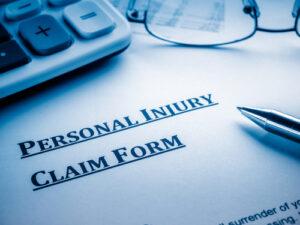Were you threatened on the street or at home? Have you just sustained injuries after someone physically harmed you? Being a victim of either one of these situations, you can make assault and battery personal claims to your assailants.

Georgia state law has provisions that enable victims to make assault and battery personal injury claims. Due to the nature of these two crimes, victims can seek compensation for other types of damages beyond physical injuries.
Making a claim for injuries resulting from assault and battery is best done with the aid of a lawyer. A personal injury lawyer can be instrumental in recovering money for physical and psychological damages.
Read on and learn the basics of assault and battery and the personal injury claim you are entitled to make.
What Is Assault and Battery in Georgia?
For the most part, personal injury claims are made following injuries caused by a negligent party. These injuries often result from the oversight of people that led to an incident. In these situations, the perpetrator of an injurious crime may or may not have had the intention to harm. Often, the latter is the case.
What separates assault and battery from other crimes that lead to personal injury is that they are premeditated. Assailants usually display an intention to cause harm to another person. The intention is a fundamental condition for an injurious crime to be an intentional tort crime in the state.
While assault and battery are often co-terminus, these two crimes are, in reality, separate. Depending on which one you were a victim of your claims may be different — and the charges placed upon your assailant will be different too.
Let us go over the distinctions in greater detail:
Assault
According to Georgia state law, assault occurs when one person threatens to harm another person. For a charge of assault, no harm actually has to occur to the victim. Only the verbal or non-verbal threat to cause injury or harm needs to be present and proven.
Assault, on its own, is punishable as a civil and criminal offense in Atlanta and anywhere in Georgia. The penalties for the accused will depend on several factors like:
- Whether or not the victim was a member of a protected or vulnerable population (e.g., elderly, disabled, women, and children)
- The presence of weapons in the possession of the perpetrator at the time the threats were made
- The relationship of the assailant to the victim
Acts of assault towards vulnerable populations and people with whom the assailant is associated or related are treated as aggravated forms of the crime. Aggravated assault is treated as a serious crime in Georgia.
Battery
Battery, on the other hand, refers to the infliction of harm on a person, with or without warning or threat. While one person harming another can occur in many instances, not all would count as battery in Georgia.
Georgia state law maintains that the following conditions must exist for an injurious crime to be considered battery:
- Intent
- Physical contact
- Harm (as reported by the victim)
Most importantly, the above-mentioned need to occur in a context where the assailant acted without privilege. A simple way to understand privilege is to think of it as a situation where harm comes as a natural hazard of activity.
For example, physical contact in football, while having the three enumerated elements that lead to battery, does not constitute battery. Injury and physical contact come as natural consequences of the activity (football).
On the other hand, hitting someone after a heated argument on the street counts as battery. An intense argument does not legitimize the other person’s use of injurious force, thereby implying the lack of privilege on the part of the assailant.
Do All Injuries Sustained Warrant Assault and Battery Personal Claims in Georgia?
In Georgia, assault and battery injuries can entitle a person to file a claim. However, not all incidences of assault and battery culminate into assault and battery personal injury claims.
Part of the reason for this is that not all injuries are serious enough. In Georgia, claims for damages can only be made if the damage is apparent to the authorities. Unfortunately, not all injuries sustained are serious enough to fit the description of “serious and severe.”
Without a doubt, victims are well within their rights to claim personal injury compensation. Unfortunately, personal injury lawyers get paid after winning, and part of winning compensation is proving the necessity for compensation. Without sizable damage or injury on the part of the victim, proof of necessity may be difficult.
Hence, instrumental to a successful personal injury claim is proving damage or injury — physical, psychological, or emotional. This is where a personal injury attorney in the state can help.
How a Personal Injury Attorney Can Assist You in Assault and Battery Personal Injury Claims
An attorney can help you in the following ways if you have sustained injuries following an attack or threat:
- Proving liability
- Proving to the courts that the assault and battery were intentional
- Determining and proving the absence of privilege on the part of the assailant
- Showing the courts, the necessity for compensation
- Presenting damages convincingly
On top of the above-mentioned, a capable Atlanta personal injury lawyer can advise you on the claims process. One that is experienced can also warn you and support you through the difficult parts of the claims process in Atlanta.
Hire an Experienced Personal Injury Attorney for Personal Injury Claims in Atlanta
A personal injury claim — especially one involving assault and battery — is an ordeal you should not go through alone. By hiring a lawyer, you can win compensation for your injuries and move on to a better place in life.
Reach out to us now if you have been the victim of assault and battery. Maximize your chances of winning compensation with Law Offices of Matthew C. Hines in Atlanta today.
